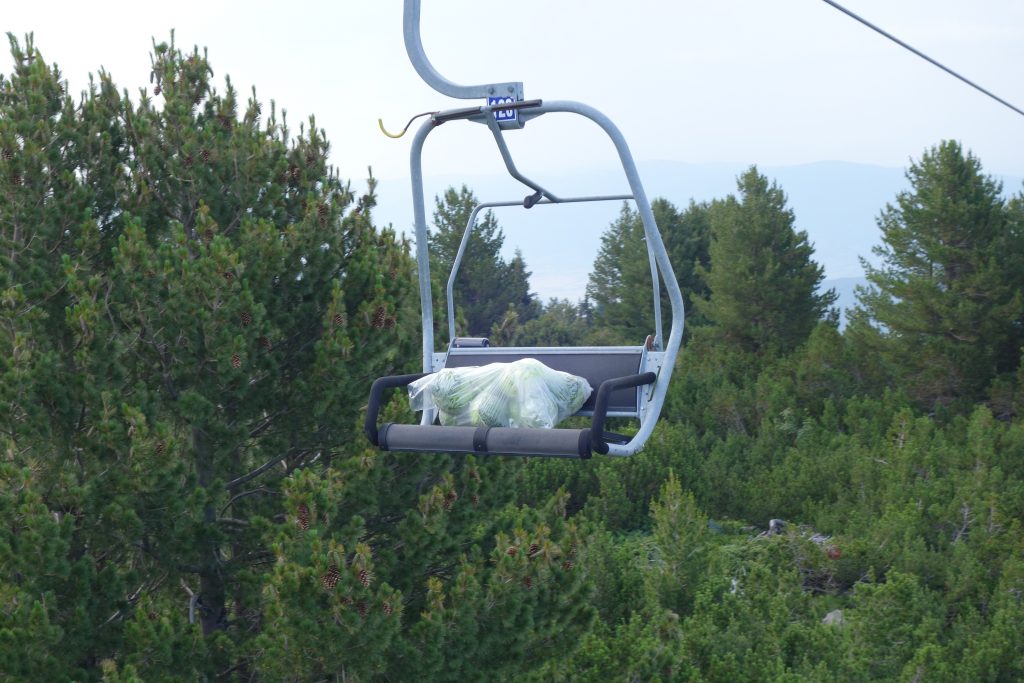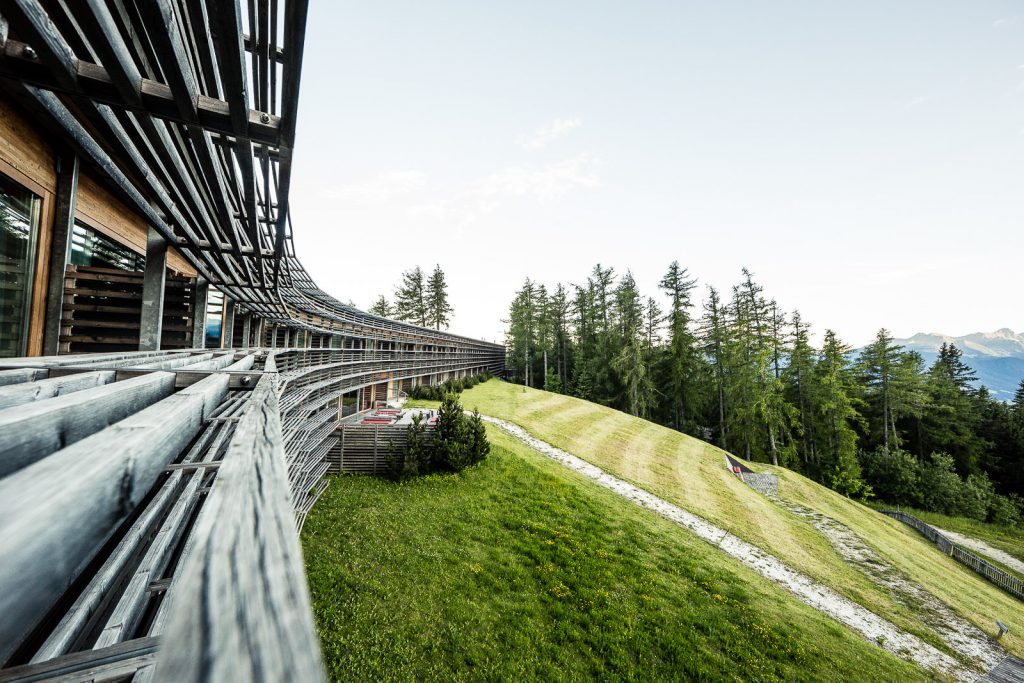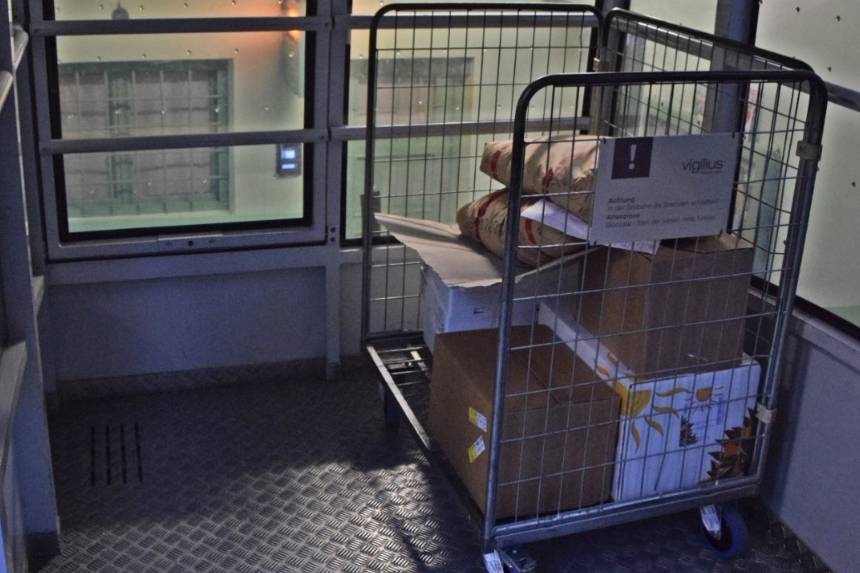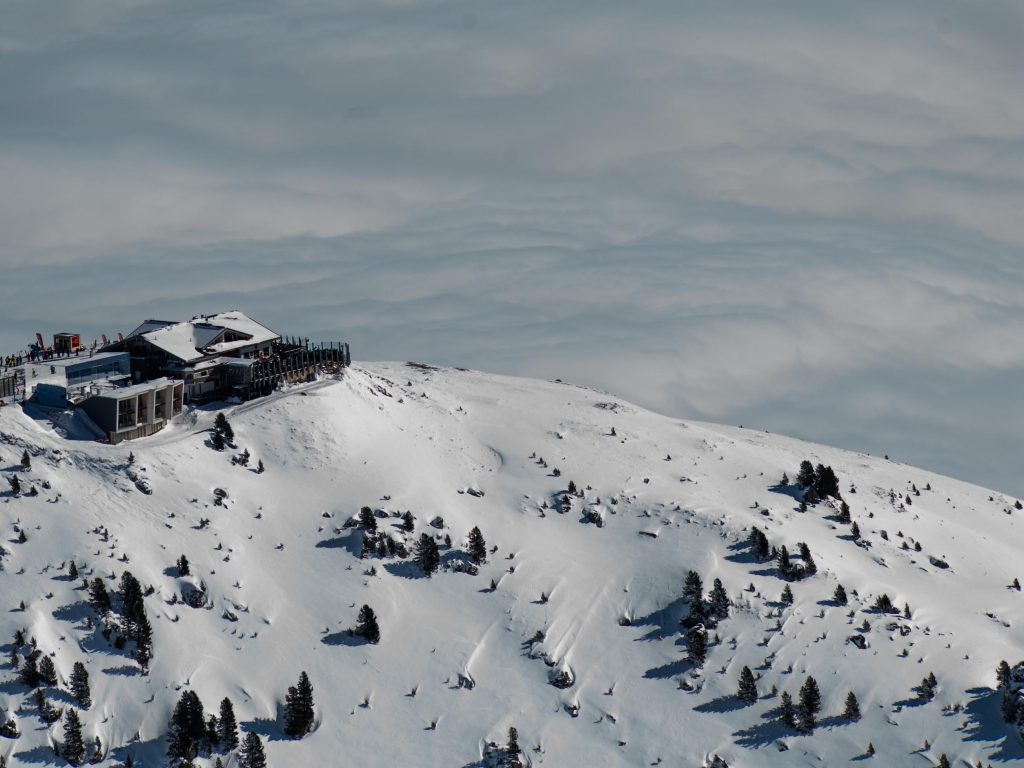Ever wondered how supplies are delivered to mountaintop hotels?
- 14Shares

Vegetables are being transported by cable car to a restaurant in Rila mountains, Bulgaria. Photo courtesy of Hannes Sakulin
Mountaintop hotels and huts come up with brilliant ideas how to get food and other supplies delivered to their doorstep.
Luxurious hotels perched on the top of the mountain offer epic views and an unforgettable experience for every nature lover. While rustic mountain huts accessible only via a several hours hike provide a welcome respite and a hot meal after a long day in the mountains.
But have you ever wondered how food, beer, and other supplies are delivered to mountaintop huts and hotels? Not to mention comfortable beds and tables. In most of the cases, there’s no access road leading to these isolated spots so owners have to figure out other ways to bring up supplies.
Business Fondue asked mountaintop hotels and here’s what they told us.
Cable car: even a piano can be delivered

Vigilius mountain resort is located in a car-free region in Italy. Photo courtesy of ©Vigilius mountain resort, Florian Andergassen
Vigilius mountain resort, a peaceful 5-star hotel, is located at an altitude of 1,500 meters (4,921 ft) in South Tyrol, Italy. A cable car is the only way for guests to get to the hotel unless someone is up for a 3-4 hours hike in Monte San Vigilio mountain.
It comes as no surprise that all the supplies reach the hotel the same way as guests.
“Almost everything is delivered by cable car. We are also able to deliver bigger items. For example, we had a concert at Vigilius in September, and an artist brought his piano with him,” Eva-Maria Zöggeler, Vigilius hotel marketing manager, told Business Fondue.
The mountain hotel gets supplies, mostly food, every day. Although a cable car might pause for several hours due to thunderstorms or windstorms, this has never caused any problems to the hotel.

Food and other supplies are delivered by cable car every day. Photo courtesy of © Vigilius mountain resort
However, according to Zöggeler, some items, such as wood chips used for heating, are impossible to deliver by cable car. In that case, they are delivered by truck. Though it doesn’t happen often as Mount San Vigilio is a car-free region so the transport by truck is highly restricted.
Helicopter: to bring big items
Situated 1,756 meters (5,761 ft) above sea level in Switzerland, an alpine hut La Vare is open from mid-June to the beginning of September. After a hike in the mountains, guests can take a rest, order a hot meal, and even stay overnight.
As there are no roads for vehicles, it takes around 1.5 hours on foot to reach a hut. Not only hikers but also staff take that route up to the chalet and down.
Gerald Bernard, who welcomes guests in La Vare, told Business Fondue that in spring, before starting a new season, he orders a helicopter to deliver wood chips used for heating as well as bigger items necessary to accommodate hikers. It’s an expensive way to get supplies, therefore, in summer Bernard brings food and other goods once per week by four-wheel drive car.
“I have the permit for that, but otherwise the driving is prohibited in this area. And it’s also dangerous,“ said Bernard.
Snowmobile: to deliver goods in winter
Although some mountaintop hotels and chalets can be accessible by a rough road in summer, it’s impossible to get there by car in winter.

In winter, food is daily transported by snowmobile to Las Vegas lodge, Italy. Photo courtesy of Las Vegas lodge
Situated 2,050 meters (6,726 ft) above sea level Las Vegas lodge in Italy accommodates guests year-round. Catalina who works at Las Vegas lodge told Business Fondue that tables, chairs and other big items are ordered and delivered by big truck and cars in fall before the snow arrives.
During the winter season, Las Vegas lodge daily orders fruits, vegetables, meat, milk and bread that are transported by snowmobile or snowcat from San Cassiano village. The rest of the supplies, such as pasta, wine, drinks, flowers, etc. are ordered twice a week.
Sometimes it takes even more efforts to deliver food to a mountaintop hotel. Stefan Eder, the host of Kristallhütte mountain hut in Austria, told Business Fondue that at first, the staff has to bring food to a cable car station in a village. After supplies are brought by cable car to the top station in the mountains, they are delivered by snowmobile or snow groomer to the hotel, which is located 2,471 meters (7,930 ft) above sea level.
“We daily bring food to the hut. In the afternoon we bring all the waste or garbage down,” explained Eder.
He added that in case they need to do bigger construction works and the snow might come early, they have to get things brought up by helicopter. Though, in summer there is a rough road to the hut.

Supplies to Kristallhütte hut in Austria have to be delivered by cable car and snowmobile. Photo courtesy of Kristallhütte
Every day different items are delivered to Kristallhütte hut: one day is reserved for beer, the next for frozen and fresh food, the third for fresh fish, and so on.
However, Eder said, in winter it’s not an easy task to deliver fresh food to the hut.
“It happens that by the time food arrives in the hut, it is already frozen. Especially, fresh salads are very difficult to deliver. Although we use isolated boxes, sometimes we still get them frozen. We also have problems with the bread as sometimes it is too cold and too wet up here,” told Eder.
How to prevent the fresh food from getting frozen is not the only concern for owners of mountaintop hotels. They have to deal with many more issues. “Weather conditions are really hard on this altitude, and this is the reason why all machines get broken only after a couple of years,” explained Kristallhütte host.
What is more, Eder faces even bigger concern: staff injury. “They have to ski down from the hotel, sometimes in the dark, so sometimes they get hurt,” said Eder.
Sherpas: carry 100 kg backpack full of supplies

In Himalaya mountains as well as in High Tatras sherpas carry towering loads to mountain huts. Photo courtesy of Goutam1963/Wikipedia
While in most of the European countries supplies to the mountaintop chalets and hotels are delivered by transport, mountain huts in Slovakia still depend on the manpower.
If you’ll ever hike in the High Tatras National Park in Slovakia, there’s a big chance you’ll be outpaced by a fit man carrying towering load. It’s a mountain porter also known as a sherpa who delivers supplies to mountain chalets. No matter whether it’s raining or snowing, High Tatras sherpas are always on their way up carrying around 70-100 kg (154-220 lbs) load on their backs.
High Tatras porters, that are called the last Europe’s sherpas, are so fast that not so many hikers can catch up with them.
Slovak director Pavol Barabaš created a documentary movie “Freedom Under Load” about High Tatras sherpas. Mountain porters, with the majority in their 60s, shared ups and downs about this profession and its future.
Horses: to bring supplies and transport luggage
In Bulgaria some mountain chalets rely on an ancient method to get food. Ivan Vazov Hut located 2,300 meters (7,546 ft) above sea level is one of Bulgaria’s highest mountain huts. In summer its restaurant offers a warm meal, fresh yogurt, and cheese of the local sheep.
According to Ivan Vazov Hut website, the supplies to the hut are delivered by horses. The guests can also use horses to ride or transport luggage.
- 14Shares
